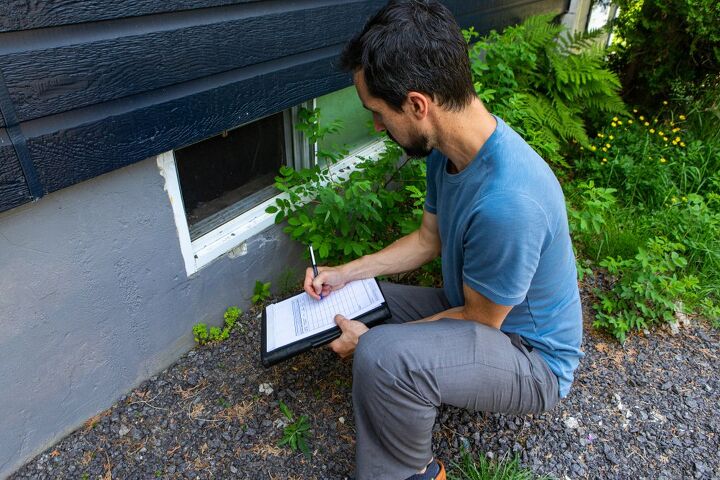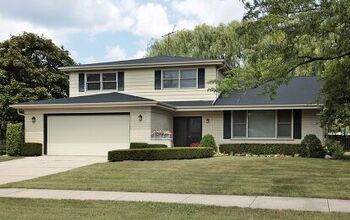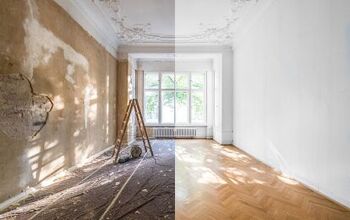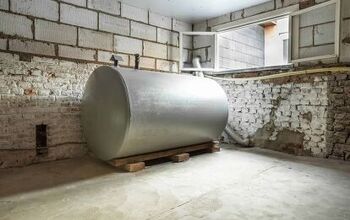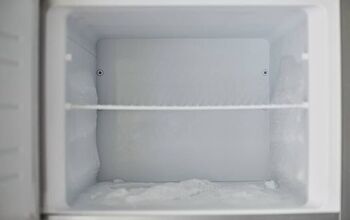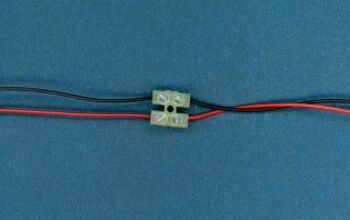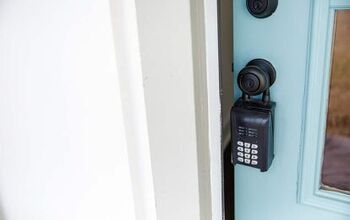What Are Home Inspectors Not Allowed To Do?

There are many hurdles you must jump over on the road to purchasing or building a home. One of these hurdles is a home inspection. A home inspector will need to enter the home, survey and visualize the property, and report on his or her findings. But when it comes to home inspectors you should know that they are not a one-stop-shop. In fact there are lots of things home inspectors are not allowed to do.
Home inspectors cannot renovate or repair a home while or right after they inspect it. Their inspection cannot be overly invasive or cause damage. This also means a home inspector cannot move large objects during the inspection, and cannot inspect what he or she can’t see or test. Your home inspector also cannot make determinations on square footage, insurability, or whether or not your home should be condemned.
Your home inspector has enough to do just inspecting the home. It is important not to ask the inspector to make decisions or perform actions outside of his or her job. In fact, in some cases, these acts might be forbidden. In order to get a better understanding of what not to ask during your home inspection, read this list of 20 things your home inspector cannot do.
20 Things Home Inspectors Are Not Allowed To Do
1. Renovate Your Home Right After They’ve Evaluated It
Home inspectors are there to inspect, not repair. Therefore, even if a home inspector is qualified to perform repairs (many are) most states forbid home inspectors from performing repairs right after an inspection. In fact, it is common for states to have laws forbidding inspectors from performing repairs on homes they inspected for at least a full year.
The idea here is there are clear lines between those who inspect a home, and those who repair it. Otherwise, there may be more blurred lines, and possible fraud, or the creation of problems that don’t exist (think dishonest mechanics, for example).
2. Cause Damage To Your Home
It might seem like an obvious thing, but it is important to note that a home inspector cannot damage your home during the inspection. First, this means he or she should exercise caution, and you can hold the inspector liable for damage caused by negligence.
Also, an inspector cannot cause damage to the home intentionally either. This includes peeling back walls, chipping paint, digging holes or any other invasive processes. Yes, your inspector will need to see as much of the home as is needed to conduct an inspection. But this cannot include destruction of the home in any way.
3. Make Design Recommendations
We all have our own design tastes and aesthetics. Some of us even think we are skilled in this department and like doling out advice to our friends. While unsolicited home design advice is rarely a good idea, it is actually not allowed when you are a home inspector.
Home inspectors are not allowed to include these design or aesthetic concerns in their report, or to make recommendations on how they think you should change or adjust your layout or design.
4. Enforce Building Codes In Legal Capacity
When you hear the word “inspector” you might think of someone who can come in and check to make sure everything is up to code. Sure, there are inspectors like that. But home inspectors are different from building inspectors who are hired to make sure everything is up to code.
Home inspectors are not able to legally enforce any building codes in the way others are. Only building inspectors have the authority to make these kinds of declarations and enforcements.
5. Offer Any Outside Services Other Than Home Inspection
Your home inspector is not allowed to offer any additional service outside their home inspection. Just as they cannot renovate your home after inspecting it, they also cannot perform repairs during the inspection, or directly after.
Even if the problem seems small, or if it is a quick fix and the inspector has the tools to do so, it is a conflict of interest. The home inspector must focus solely on what he was hired for.
6. Provide Any Cost Estimates For Repairs You Need
Cost estimates are another conflict of interest. Performing the actual work is a clear crossing of boundaries. But estimating costs is also something your home inspector should not do. You also should not request this from your inspector either. Simply take the information provided and find a suitable professional to provide you with an estimate.
7. Condemn Your Home Or Give It A “Pass/Fail” Score
Your home inspector might find lots of issues with your home. He or she might even think the home is not livable. But just because your home inspector sees these issues and has this opinion does not mean he or she has the authority to make these calls.
A home inspector cannot condemn your home. Home inspectors can not issue a pass or fail grade when it comes to livability either. Only a condemning authority can issue these sorts of legal proclamations. These are hired or assigned by either your local or even federal authorities.
8. Determine Energy Efficiency Of The House
A home inspector also cannot give a stamp of approval when it comes to energy efficiency either. Determining how energy efficient a home is takes a lot of research and study. Not only is a home inspector not equipped to perform all the tests needed, but that also is not the focus of the inspection.
There are all sorts of ways to make your home energy efficient. The best way to prove your home is energy efficient is to make sure you have installed all the most energy efficient appliances, windows, and energy means.
9. Operate Systems In The House That Are Turned Off Or Not Working
Your home inspector can only inspect what is working. So if your heater or HVAC system is damaged, then it will be marked as such. Damaged or broken appliances and services in the home cannot and will not be tested by the home inspector.
This also goes for services that are cut off due lack of payment. If, for example, your home does not have gas because it has been cut off or you have not started the service, then anything with gas can’t be tested.
10. Tell You What Your Home Is Worth On The Market
A home inspector may have a good idea of what your home is worth. If they are a good inspector and perform inspections on homes all over the neighborhood, the odds are he or she has a hunch as to its value. But your home inspector cannot give you the value of your home.
Home inspectors are not there to appraise what your home can sell for on the market. They are not your real estate agent. That is not what you hired them for. It also is not what they are trained for.
11. Determine If Your Home Is Suitable For A Business
These days more and more people want to work for themselves. So if you want to operate your business in the home, you will want advice and approval. Unfortunately, a home inspector can not give a stamp of approval as to whether or not your property is suitable for a business.
The home inspector will go into your home and look around to evaluate a set list of systems and attributes. A home inspector cannot give you an opinion or justification to use the home for any particular uses.
12. Perform In-depth Tests On Air Quality
A home inspection is in-depth, but it is primarily a visual experience and inspection. A home inspector does not come to your home with elaborate air quality testing machines. Sure, there are several dangerous things that can be in your air, like radon for example.
But a home inspector will not perform these in-depth air quality tests as part of a standard home inspection. Some inspections offer this type of testing for an add-on service at an additional fee.
13. Make Contractor Recommendations
Your home inspector should not include any recommendations to contractors or companies to get your repairs from. Your report should include areas that need repair, but should not include who you get these repairs from.
It is your job to take the home inspection report and find the appropriate professionals to perform the jobs. Your home inspector is not paid to make, nor is he or she invested in, who you hire for these jobs.
14. Make Declarative Opinions On Septic Tank Condition
The septic tank, while critical to the proper functionality of your home, is not part of most home inspections. Septic tanks are buried underground. Therefore, a home inspector cannot access the tank. In order to have your septic tank evaluated, you likely need to inquire with a septic company.
15. Tell You The Insurability Of Your Home
Your home inspector is also not a licensed home insurance agent (at least he hasn’t been hired as one). This means the home inspector also cannot tell you how insurable your home is, and how much it will cost you. You need to enlist the services of someone who specializes in home insurance for this matter.
16. Enforce Or Determine Where Your Property Boundaries Are
Your home inspector might look over your entire property, but won’t determine where it ends. This is because a home inspector can not draw your property lines, or give his or her personal opinions when it comes to where your property begins and ends. This goes for easements and encroachments as well. If you need this type of service performed, you should hire a land surveyor to conduct these matters.
17. Move Large Objects Or Hazards To Perform Inspection
Before you have your home inspected, you should make sure it is completely ready. This means you need to move large obstructions from inspection areas. This means moving couches away from electrical panels, and unblocking any essential doors or crawl spaces.
A home inspector is not to do any heavy lifting. For one, that just isn’t part of the job, as they are not movers. Also, for liability purposes, they are likely not going to put themselves at risk of injury.
18. Ignore Safety Guidelines Or Inspect Dangerous Homes
Home inspectors, in addition to not moving large objects, should not perform any tasks that put their safety at risk during the inspection. Sometimes this includes having to say no to an inspection. If a home has signs that it is dangerous or hazardous to enter, then it is the home inspectors duty to decline the inspection until the property is safe to enter. This can occur if a home is not finished or structurally sound.
If there are hazardous conditions the home inspector should make a note on the report stating why he or she did not inspect it.
19. Make Declarative Statements On Home’s Square Footage
A home inspector also won’t make declarative statements on his or her inspection in regards to the exact square footage. This means you will need to use a measuring tape to determine the square footage of each room, and the home in general. Square footage normally does not come into the typical categories of a home inspection.
20. Issue Home Certificates Like “Certificate Of Occupancy”
In addition to a home inspection, you might also need a certificate of occupancy. This is common if you have your home inspected right after you finish building it. Some companies, like an electric company, need a certificate of occupancy to install equipment. You need a certificate of occupancy to have the electric company install an electric meter, for example. Unfortunately, home inspectors are not qualified, and do not have the authority to issue certificates of occupancy.
Summing Up What Home Inspectors Can’t Do
As you prepare to finish up the process of moving into your new home, you are likely eagerly awaiting your home inspection. Make sure you know what an inspector can and can’t do. An inspector is there to observe the home, and signal out items and areas that need attention and repair. The home inspector cannot perform those repairs. They cannot make recommendations, issue professional certificates, or even condemn a home. Your home inspector also can’t make decisions about your home’s square footage, energy efficiency, or even insurability.

Tom Gaffey is an expert writer who currently resides in Washington D.C. Tom has a passion for real estate and home improvement writing, as well as travel and lifestyle writing. He lived the last twelve years in Hawaii where he worked closely with luxury resorts and event planners, mastering his knowledge of aesthetics and luxury products. This is where he found his passion for home improvement and a keen interest in DIY projects. Currently, Tom resides in Washington D.C, and also working on his debut fiction novel.
More by Tom Gaffey



